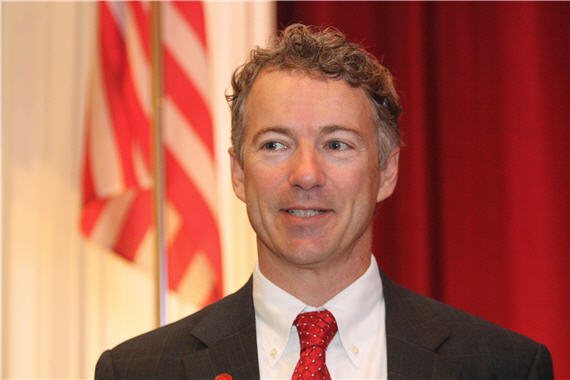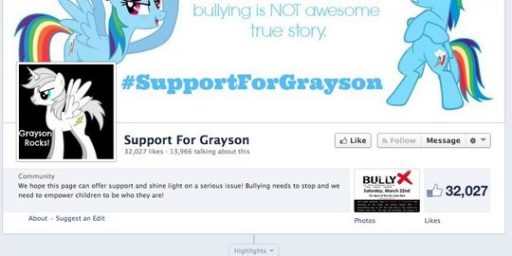More Politics 101 for Rand Paul (and his Supporters)
More Politics 101 for Rand Paul.
 Via McClatchy: Tea Partiers assail Rand Paul for taking D.C. money.
Via McClatchy: Tea Partiers assail Rand Paul for taking D.C. money.
Republican Rand Paul’s opponent in the U.S. Senate race isn’t the only one who thinks Paul compromised his stance against business as usual in Washington, D.C., by taking campaign cash at a high-dollar fund-raiser there last month.
It rankled some Republicans, too.
“I am deeply disappointed that he did that,” said Warren Scoville of London, an attorney who served more than 20 years in various positions with the state Republican Party. “I voted for (Paul) because of where he was, and now he’s not where he was.”
Last year, with the primary election still months away, Paul pledged not to accept contributions from any senator who voted for a federal bailout of the banking industry.
That was in response to plans by Paul’s main opponent, Secretary of State Trey Grayson, to attend a Washington fund-raiser hosted by Republican U.S. Sen. Mitch McConnell and others who voted to shore up giant banks with taxpayer money.
[…]
After trouncing Grayson, however, Paul benefited from a $1,000-a-person fund-raiser June 24 in Washington hosted by McConnell and attended by senators who voted for the bailout.
Just like having to learn how to deal with the press, the issue of how to interface with the party establishment is something any major party candidate for the US Senate has to to do. Further, money is going to be involved if one actually plans on winning the race. Paul and some of his supporters are finding out that it is one thing to say a lot of idealistic (and often unrealistic) things when out of power/running as an insurgent candidate in the primaries and yet another to actually be a major party candidate for the Senate.
This also underscores the is a reason most politicians start small in term of first campaigns so as to learn the ropes. In fairness to Paul, it is difficult to engage in on-the-job training when not only a whole state, but the whole country, watches.
While, as the story notes, some of his supporters may be turned off by the fundraising, I can’t imagine that it will have a major influence on the vote. I do, however, think that the more Paul has to play big boy politics, the more he is likely to both alienate some mainstream voters (as his gaffe over the Civil Rights Act demonstrated) as well as some of his own supporters, as he will end up to be, by definition, more of a mainstream politician than they thought he was going to be back in those halcyon days of the primary when it was easier to project onto him whatever views they wanted to project.



He should run a one sentence campaign and refuse to comment further….
” Hi, I’m Rand Paul , I’m an opthamologist and I have a better vision for America and Kentucky than has Jack Conway.
The problem is that one still has to make the case. And, further, if talking will only get you into trouble, then there is a serious problem with one’s candidacy.
I’m pretty confident he is going to take a firmer stand in the Senate then you give him credit for. He could be half as independent as his father and still make waves.
As for the donations, that doesn’t bother me in the slightest. He took a stand in the primaries to differentiate himself from his opponent and certain segments of the R’s, and it worked. Now it is general election time, not primary time. The time for intra-party differentiating is over, and I would think someone like Mr. Scoville, with his long party service, would recognize that.